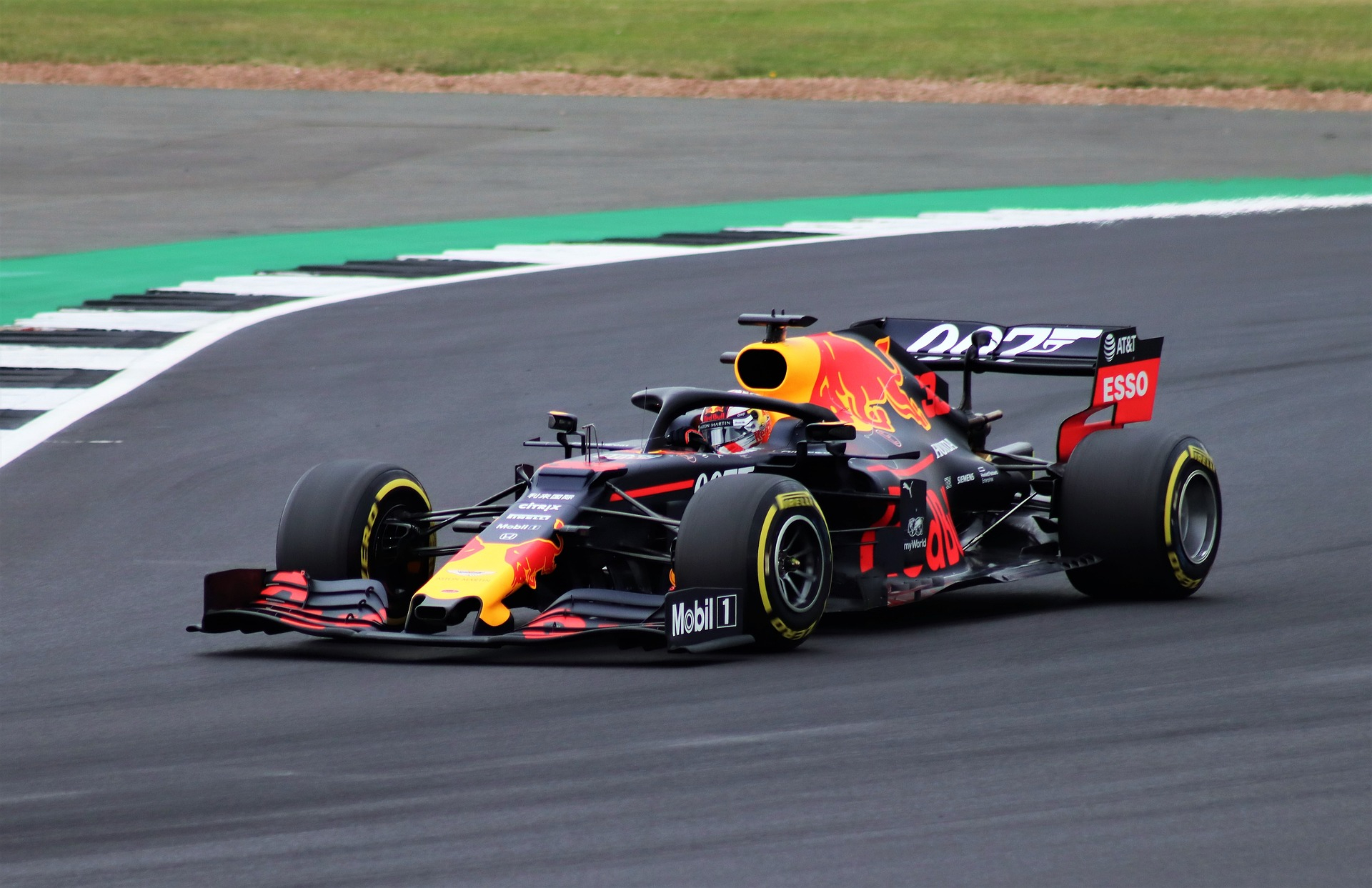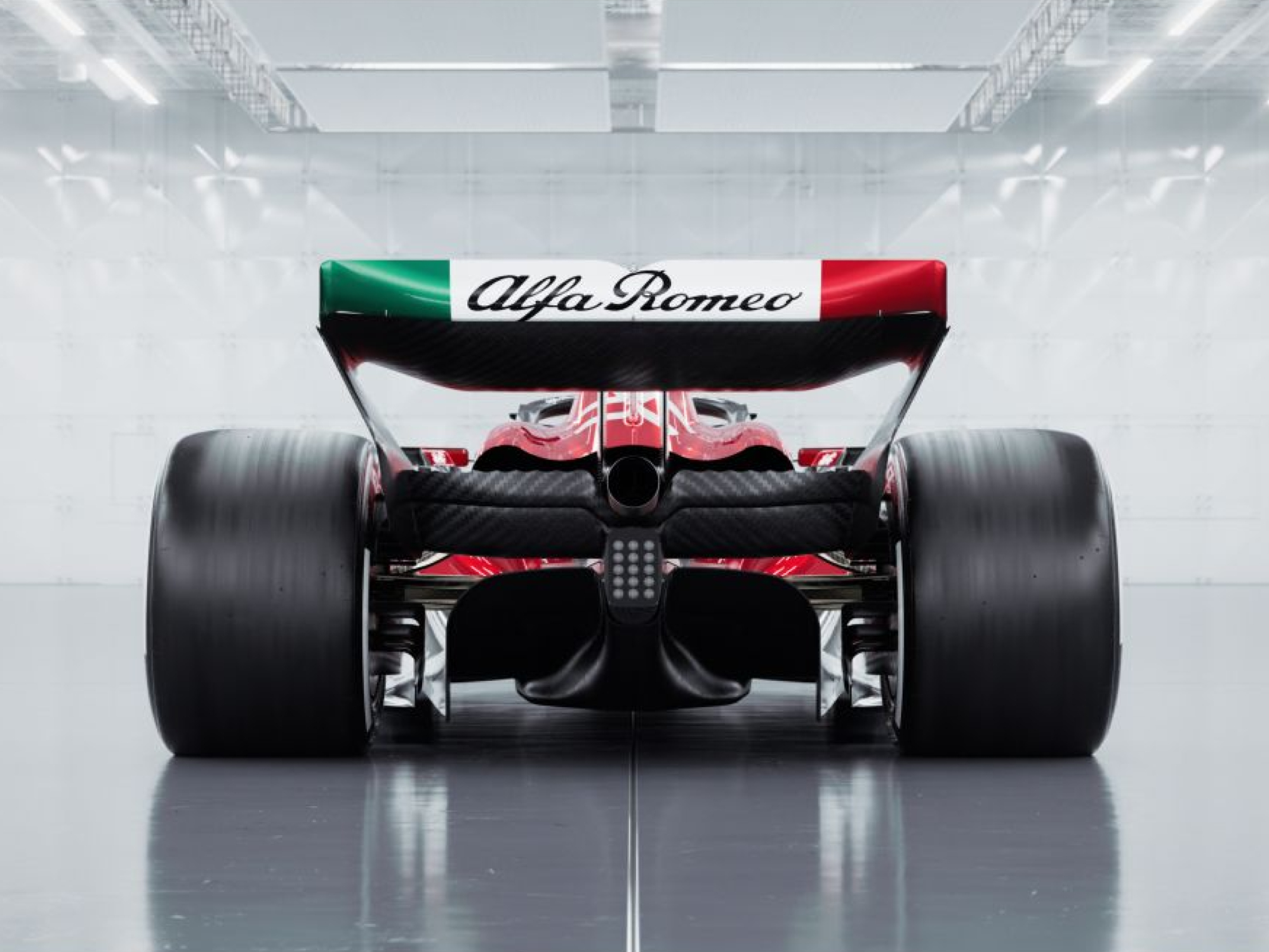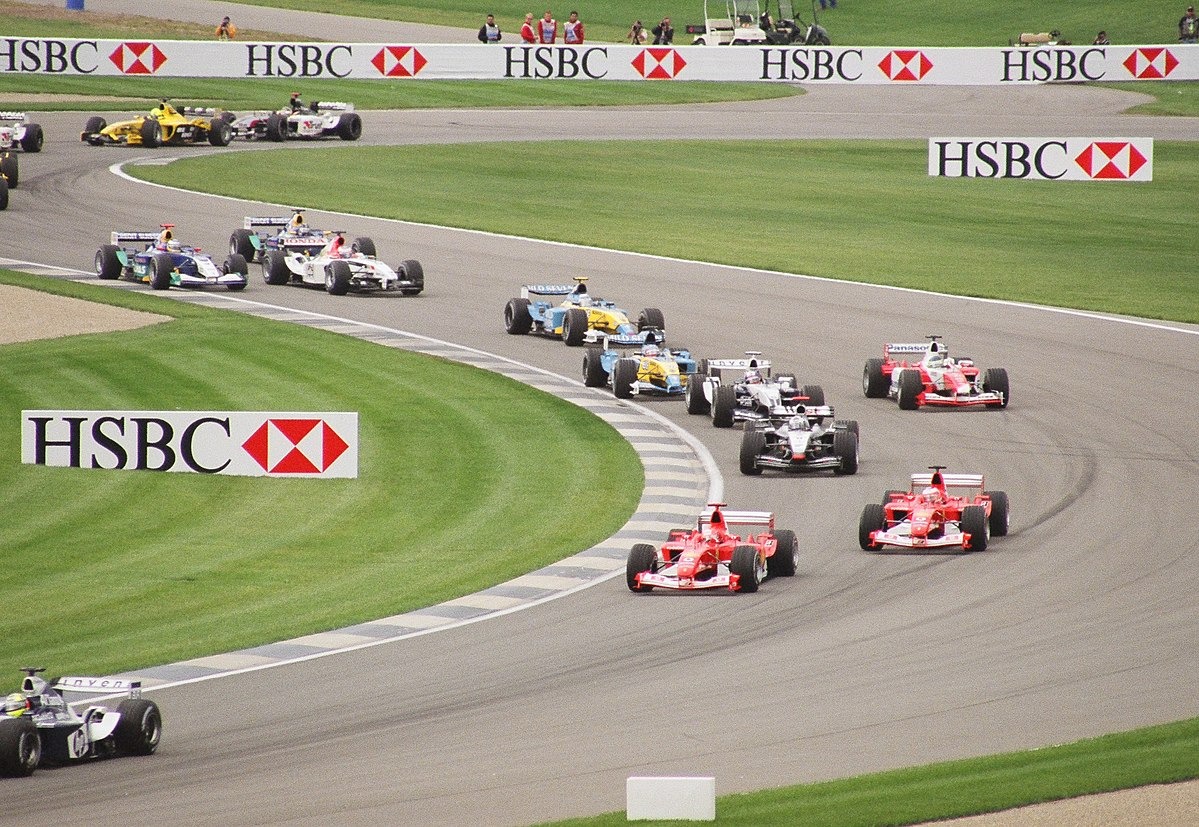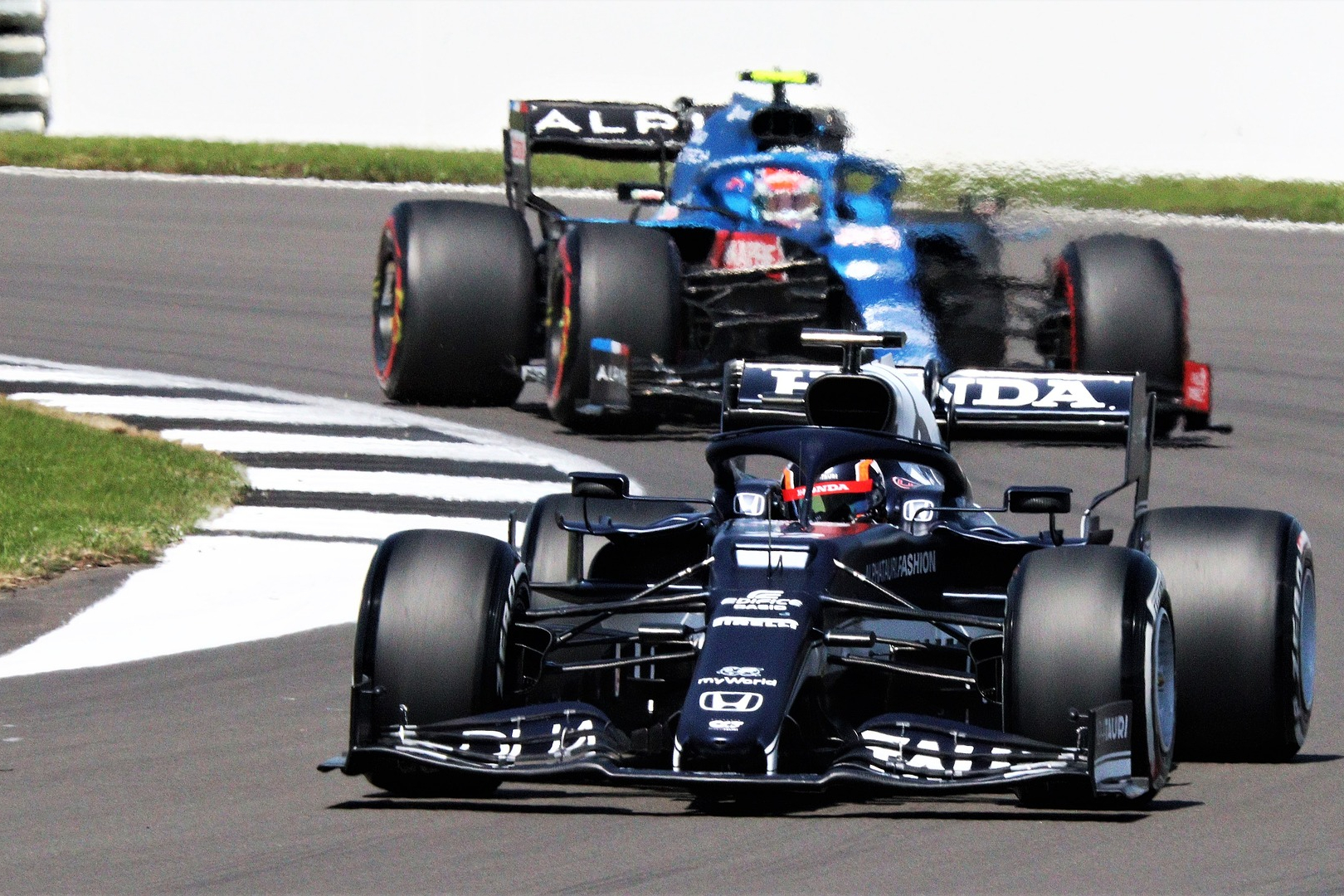
How fast do Formula 1 cars go? When you watch F1 races, it’s easy to adapt visually to the speeds, and depending on subjective factors and the scale of the circuit section you see, it’s common to lose all sense of how fast F1 cars can go. To answer the question fairly, it’s important to qualify any answer about how fast Formula 1 cars go.
For example, the fastest speed for any F1 car anywhere anytime is 246.908 miles per hour in a 2006 Honda RA106 F1 race car, but that speed wasn’t during a Grand Prix or any F1 event. Instead, the record-setting speed was recorded at the Bonneville Salt Flats, which is hardly a normal context for the question. Also, the Honda’s aerodynamics, engine, and tires were modified for the Salt Flats speed test.
Fortunately, there are more reasonable answers to the speed question. One accurate and easy answer is that, during Grand Prix, F1 race cars often exceed 200 mph on straight sections of race tracks.

Why how fast F1 cars go matters
F1 race car speeds matter because Formula 1 racing is considered the elite motorsport, the top tier of professional racing. Indy 500 cars regularly drive at higher top speeds than Formula 1
F1 teams can modify F1 race cars for each race. However, with many of the races each year only one week apart (this year, there are 24 Grand Prix), the teams have only a few days to make changes. Any modifications must be in strict compliance with rigorously enforced FIA F1 Regulations.

FIA F1 Technical Regulations
The FIA, the governing body for Formula 1 and most other professional motorsports issues three regulations each year. The combined documents number in the 100s of pages. The F1 Sporting Regulations stipulate the rules for the behavior of drivers and teams during races. The F1 Financial Regulations cover most aspects of financing and budgets, focusing on annual spending caps for each team.
The FIA F1 Technical Regulations, the longest and most complex of the three sets, stipulate in fine detail how F1 race cars are constructed. Those regulations are key to how fast Formula 1

This year so far in F1, top speeds with 2024 cars
Another way to answer the F1 race car speed question is to address the fastest lap speed. In addition to earning Championship points for themselves and their team based on the order of finishing a Grand Prix, F1 drivers can win an extra point by driving the fastest lap in the race.
So far in the 2024 season, at the Formula 1 Gulf Air Bahrain Grand Prix 2024, Max Verstappen, driving for Red Bull, had the fastest lap with an average speed of 130.7 mph. However, Verstappen’s speed is nowhere near the record F1 lap speed.
The current fastest F1 lap speed record of all time was set by Lewis Hamilton, driving for Mercedes at the Italian Grand Prix in 2020, when his average for the lap was 164.267 mph.
The record for the fastest maximum speed during a race was set by Valtteri Bottas driving for Williams in the 2016 Mexican Grand Prix when Bottas hit a top speed of 231.46 mph.



